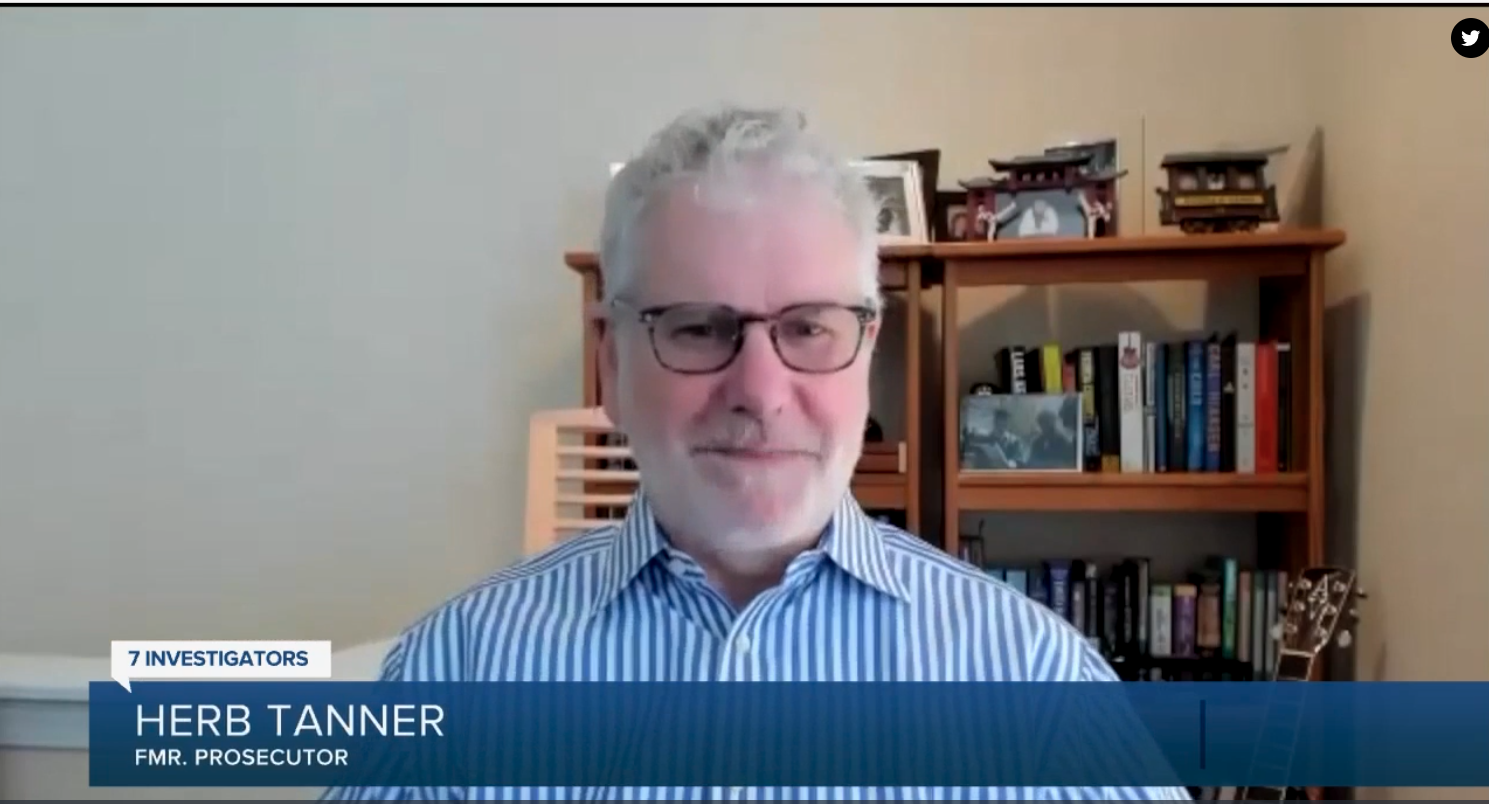
Idaho Supreme Court Finds Warrantless DV Arrest Unconstitutional
I was in Vermont with the International Association of Chiefs of Police Leadership Institute on Violent Crimes Against Women, when a colleague from Idaho alerted me to a recent Idaho Supreme Court decision on the constitutionality of warrantless misdemeanor arrest. The decision invalidated as unconstitutional the Idaho statutes authorizing law enforcement to arrest on a misdemeanor not committed in the officer’s presence. Now, in Idaho at least, officers cannot arrest a batterer unless the officer sees the assault, or the investigation develops probable cause and an arrest warrant is issued.
The potential for havoc from this case is immense. Simply think of the statutes that permit arrest without a warrant. Domestic Violence, protection order violations, even bond violations, are all cases that permit arrest in many states upon establishing probable cause even if the violation wasn’t witnessed by officers.
The History of Warrantless Misdemeanor Arrest
The decision is short and clear in its reasoning. Article 1, Sec. 17, states: “The right of the people to be secure in their persons, houses, papers and effects against unreasonable searches and seizures shall not be violated; and no warrant shall issue without probable cause shown by affidavit, particularly describing the place to be searched and the person or thing to be seized.” At the time that the Idaho Constitution was adopted, Idaho’s statute on arrests mirrored the then existing federal standard, allowing warrantless arrests “if the arresting officer had probable cause to believe a felony had been committed or if the offender had committed a misdemeanor in the presence of the officer.” That held until at least 1979, when the statute was amended to permit “the warrantless arrest of a person when there was reasonable cause to believe he had committed a misdemeanor assault or battery outside the presence of the officer, e.g., in a domestic violence situation. State v. Clarke, pg 4.
Called upon to determine the intent of the drafters of Idaho’s Constitution, and their understanding of the language they set forth, the Idaho Supreme Court searched the history of warrantless arrest. They found near universal understanding of the law to be that the Constitution permits warrantless arrest for misdemeanors only if committed in arresting officer’s presence.
But That’s Just Idaho, Right?
True, this is only one State. Idaho Supreme Court decisions are not binding precedent anywhere else. But, the success of this defendant in this case could influence and encourage challenges in other states. However, while challenges elsewhere are possible, they may not be very probable for a host of reasons.
Where does Clarke go now? I think that we can expect a lot of action on the legal end of this case. Where does a state Supreme Court decision go on appeal, if any place? Idaho is in the 9th Circuit, which is seen as a traditionally progressive court. Even if that’s true, federal courts in general are not flinging open their doors to challenges to state Supreme Court interpretations of State constitutions. It can be done, and I expect it’s being considered at the Attorney General’s office.
I had the chance to talk about this decision with both prosecutors and police officers in Idaho. It has certainly changed procedures. The response to this decision is still evolving, but the people I talked to stressed that the first response is to investigate domestic violence cases to clearly establish probable cause for a felony offense, where possible. Where there is no probable cause for a felony arrest, the law enforcement officers have the option to contact the on-call prosecutor to secure an arrest warrant. However, that’s not the optimal solution, in part because a magistrate or judge is not always available to issue the warrant. And with the volume of misdemeanor domestic violence calls, law enforcement officers and prosecutors could be busy all night preparing and swearing to warrants. Unfortunately, it could mean a return to the bad-ol’-days of separating the parties, hoping that the situation doesn’t escalate.
Challenges in other States: I suspect that once this decision is more widely circulated, challenges to other state’s statutes permitting warrantless arrest for misdemeanors committed outside the presence of officers will be raised. The decisions in those cases, if they materialize, are likely to be grounded in an interpretation of the constitution of the state where they are brought. These challenges may face considerable hurdles, as well.
On the upside, this may have already been litigated in some states. Deciding a case of first impression is one thing, overturning almost 50 years of precedent is (or should be) a whole other thing. I decided to look briefly at Michigan’s statute and case law. I found, not surprisingly, an Attorney General opinion addressing the constitutionality of the statute authorizing warrantless arrest in misdemeanor domestic violence cases.
Like the opinion in Clarke, Michigan’s AG began by acknowledging that Michigan followed the common law rule regarding misdemeanor arrest, citing a case from 1888. That rule was subsequently written into Michigan’s statutes. The door for change was left open in an 1894 case, Borroughs v. Eastman, where the majority of the Court said, “[I]n the absence of any statutory power or authority, an officer cannot arrest without a warrant, except on suspicion of felony, or in case of an actual breach of peace committed in the presence of the arresting officer.”
That seeming grant of legislative power to change the arrest rule was important, but doesn’t necessarily mean that a warrantless arrest on a misdemeanor passes Constitutional muster. Deciding that required digging into the origin of that rule and the language of the Constitution of the United States, and Michigan’s Constitution adopted in 1963.
The AG’s analysis of both documents led to his conclusion that the misdemeanor arrest rule is one of common law, not grounded in the Fourth Amendment. The opinion cites several federal decisions holding that an arrest is constitutionally valid if the arresting has probable cause. US v Lipscomb, 435 F2d 795, 799 (CA 5, 1970), cert den, 401 US 980; 91 S Ct 1213; 28 L Ed 2d 331, reh den, 402 US 966; 91 S Ct 1635; 29 L Ed 2d 131 (1971); US v Allen, 629 F2d 51 (CA DC, 1980); US v Martin, 509 F2d 1211 (CA 9, 1975), cert den, 421 US 967; 95 S Ct 1958; 44 L Ed 2d 455 (1975). Since it is a rule of common law, the Legislature is free to pass a law that changes it.
IS THE OFFICER'S PRESENCE REQUIRED?
The AG’s opinion came in 1985. It cites a few states that had already decided the constitutionality of warrantless misdemeanor arrest laws, both for and against. But, as they say, time marches on, if only at a glacial pace. The United States Supreme Court weighed in on warrantless arrest for misdemeanors committed in the officer’s presence, in Atwater v. Lago Vista, 532 U.S. 318, 121 S.Ct. 1536, 149 L.Ed.2d 549 (2001). In Atwater, the Court majority opinion exhaustively reviewed the history of the rule from before the founding of the Republic to 2001, and found that warrantless arrest for a misdemeanor – even one like the Texas statute at issue which was punishable by a fine only – is valid so long as it is based on probable cause. But the offense in Atwater, not wearing a seatbelt, was committed in the officer’s presence.
The issue apparently comes down to whether the offense is committed outside the officer’s presence. Atwater, and subsequently Virginia v. Moore, 553 U.S. 164, 128 S.Ct. 1598 (2008), clearly set the rule that arrest without a warrant is permissible if based on probable cause. Neither case definitively applied that rule to misdemeanor offenses committed outside the presence of the officer. However, both confirmed that individual state legislatures can set the rules of arrest. Individual state’s may grant more protection to its citizens by requiring warrants for misdemeanor offenses. It stands to reason that since the constitutional measure of arrest is probable cause, the rule arguably allows the individual states to dispense with the common law requirement that the offense be committed in the arresting officer’s presence.
I didn’t find any U.S. Supreme Court decision that hinges the constitutionality of warrantless arrest based upon the commission of the offense in the officer’s presence. State and federal courts have weighed in on the “in the presence” requirement. Most have held that the “in the presence” requirement is a common law requirement, not required by the Fourth Amendment. Thus, a legislature may pass a law in derogation of that requirement without running afoul of the Fourth Amendment. See, State v. Walker, 157 Wn2d 307, 138 P.3d 113 (2006); Woods v. City of Chicago, 234 F.3d 979, 992 (7th Cir.2000); Street v. Surdyka, 492 F.2d 368, 371 (4th Cir.1974)
In the end, the Clarke case may exist as an outlier, a thorn in the side of Idaho’s law enforcement but nothing more. But cases that begin as outliers have a way of becoming problems as word gets out that at least one state has expressly ruled warrantless misdemeanor arrest statutes invalid under the state’s constitution. I guess that watchful waiting is the best course for now.


